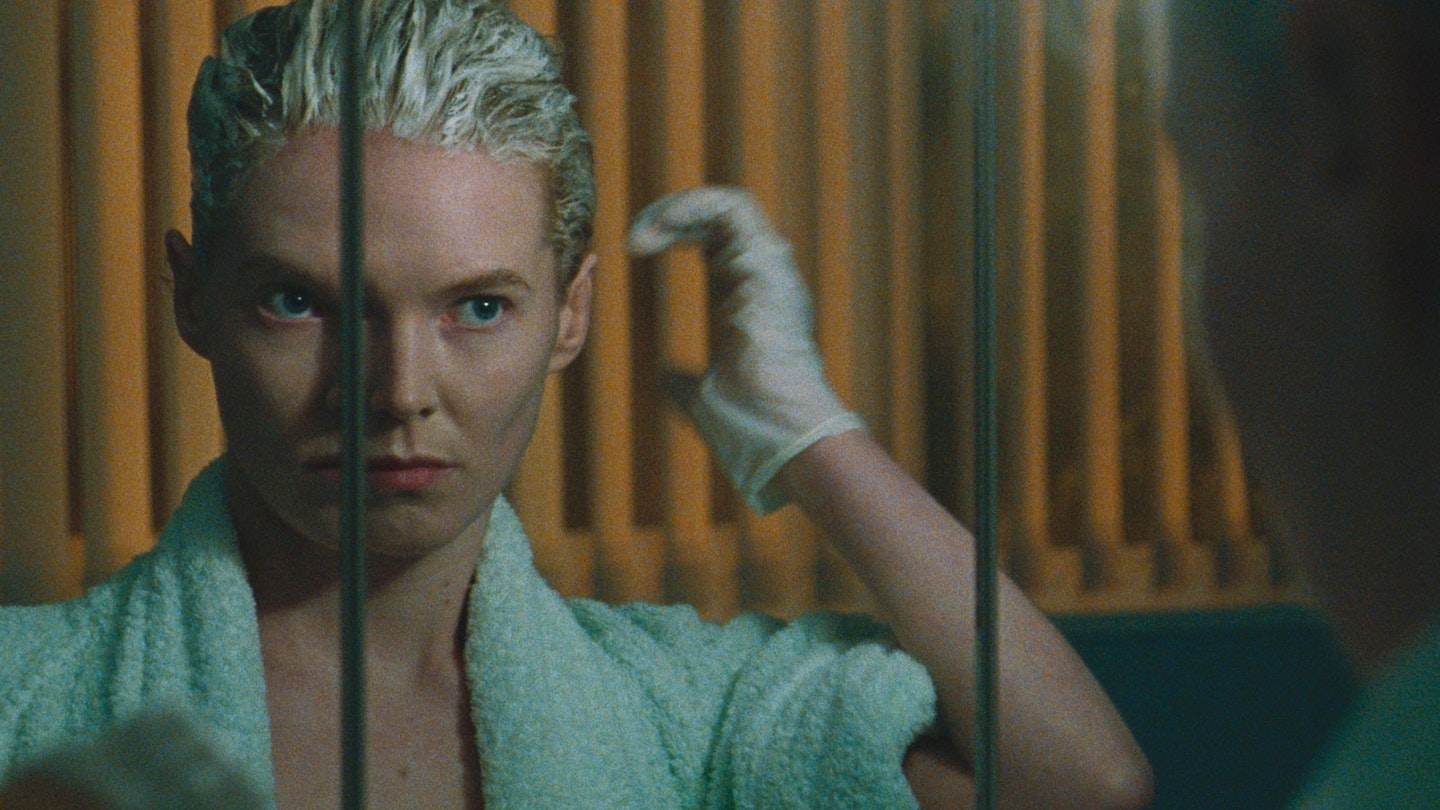There are few laws in living memory more shameful than Section 28. Introduced by Margaret Thatcher’s Conservative government, it essentially enshrined homophobia into law, preventing teachers from the “promotion of homosexuality” in schools, and fostering a climate of mistrust and fear that continued well into the current generation (the law was only repealed in 2003 in England and Wales). It’s into this environment that first-time writer-director Georgia Oakley finds a personal angle in the political struggle, telling the story of Jean (Rosy McEwen, in her first lead role), a woman caught in the headlights of history.

The world it depicts is one that most of the filmmakers or young cast never experienced first hand; Section 28 was introduced in 1988, the year Oakley was born. Yet it feels plucked from that time, leaning heavily into its period, for better and only occasionally worse. Victor Seguin’s cinematography is gorgeously grainy and muted, an era-appropriate aesthetic bolstered by Kirsty Halliday’s sharp costuming. Oakley is also unafraid to make it an ‘issues’ film, something that decade was always fond of: TV and radio offer seemingly round-the-clock coverage on the homosexuality ‘debate’, while advertising billboards in Jean’s neighbourhood conspicuously blare grisly messaging such as, “Are your children being taught moral values?”
For a debut lead role, Rosy McEwen has an extraordinarily striking screen presence.
If the climate of conservatism it summons isn’t always subtle, the film is at pains to be more than just a message. This is a knotty, complex character study, more interested in summoning an empathetic portrait of a life lived in secret, and all the strains that brings. There is a messiness that comes with staying at least partly in the closet: what do you do when there are no obvious right answers, no mentors to turn to, no prior playbook?
It’s newcomer McEwen, in the title role, who sensitively brings this internal struggle to life. On screen in almost every scene, she balances the vulnerability of her stresses with a worldly poise and calm. For a debut lead role, she has an extraordinarily striking screen presence; the film shares its title with a 1984 David Bowie song, and with her cropped blonde hair and pastel costuming, there is a touch of New Romantic-era Bowie androgyny to her Jean. Oakley takes care, too, to show a queer life that feels rich and lived-in — from the simple exhilaration of a boozy, smoky gay pub, bound by the safety and welcoming of that community, to the everyday curtain-twitching of the wider community, automatically suspicious of difference.
There is a real sadness to the core of this film, a sense heightened by an elegant, lush score from Chris Roe, which elevates the melodrama — but it ends on a note that celebrates the subculture it was forged in. If there is a message to be drawn from the messiness it depicts, it’s that even in the face of state-endorsed bigotry, there is room for joy and hope.
